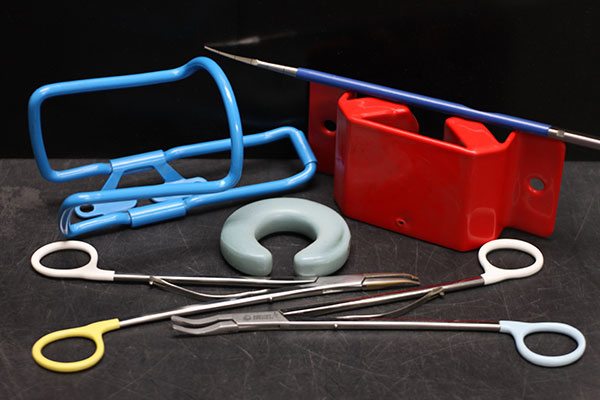
Nylon Coatings Are Ideal for Abrasion Resistance
Nylon always scores big on versatility and ease of application.
Nylon coatings are everywhere because they are functional coatings that deliver consistent performance. The main job Nylon coatings perform is surface protection, but many of their secondary properties are desirable for products and components that require long-lasting physical durability, chemical resistance, and abrasion resistance.
The automotive industry uses Nylon coatings often for components that might experience repeated friction. The mechanical “performance” and thermal stability of the coatings are ideal for automobile components that are made to last the life of the vehicle. And Nylon coatings help automobile manufacturers achieve another high-priority goal—reducing noise, vibration, and harshness (NVH) to an absolute minimum.
What Is Nylon?
Nylon is not a term identifying a specific formula but a group of synthetic polymers. Nylon coatings are thermoplastic polyamide coatings that gain strength and durability from the Nylon’s repeating molecular structure. Nylon is considered a “green” product because it is made from castor seeds, a renewable raw material.
This strength makes it durable in many measurable ways, including high impact resistance. Nylon has high dimensional stability, good resistance to stress cracking, and low moisture absorption. Nylon coatings are not affected by pressure extremes, PH variations, or high or low temperatures.
Ensuring Performance
Nylon coatings are also very desirable in many industries because they can deliver high performance in a thin coating. There are almost no limitations on what Nylon can coat. (We’ve even coated hamburger buns, if you can believe it!)
But because of the thinness, careful measures must be taken to guarantee the coating will perform consistently and durability will be maintained. Also, mistakes during application can be costly, as Nylon is very difficult to strip off metal surfaces.
We typically apply Nylon coatings with a spray gun or a dip method. The primary pitfalls to avoid are thickness overbuild and unnecessary thickness variations. These factors can increase the likelihood that a coating might peel before its expected service life is complete. You should also monitor how you hang parts before, during, and after coating so there are no hanging marks, which can affect the coating performance.
Here’s a list of Nylon’s performance properties that outlines its resistance to corrosion, chemicals, abrasion, and damage. At Crest Coating, we value the coating knowledge and application experience of our staff, who have decades of experience. To find the right coating for your next project, fill out this quick form today.